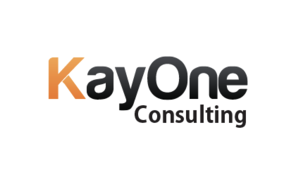Top 10 Startup Mistakes And How You Can Avoid Them
Entrepreneurs come up with innovative ideas and establish startups to convert such ideas into business opportunities. Startups go a long way in driving a country’s economic growth. But the reality is that only a few startups are able to go against the tide and achieve success.
As per a study, 70% of the startups fail usually around 20 months after first raising financing. According to Bloomberg’s analysis, 8 out of 10 startups failover 18 months mainly due to a lack of understanding of customer needs and inadequate revenue generation.
These statistics showcase that the survival rate of startups is quite low. Though entrepreneurial failures are a fundamental requirement of startups as they improve their future performance. But, if the cost of such failures is high, it may lead to a lot of challenges for the business. For instance, failed startups may not be able to generate sufficient revenues, may have cashflow issues, and may have poor long-term prospects.
Now, there are several factors that contribute to the failure of a start-up business. In this article, we will discuss the top 10 startup mistakes that a business owner must avoid.
[monsterinsights_popular_posts_inline]
1. Lacking Product Fit
One of the fundamental startups mistakes is that they lack product-market fit. That is, startups fail to develop products or services that their target customers need.
To create products or offer services that the target customers want, it is extremely important for startups to first validate their business ideas. They must follow an in-depth process to get the initial idea validation.
For instance, startups must first clearly define their customer personas. Then, they must undertake market research to know the market size, key segments, and scope for any unique selling proposition.
Once they have such insights, the startups must also evaluate their competitors and hence develop a marketing strategy for customer acquisition and product distribution.
Following this, startups must come up with a business or revenue generation model. Such a model must clearly define the value startup will create for its target customers and how it will solve their problems. Besides this, it must also explain how the startup will earn revenues and keep itself fiscally sustainable.
Finally, startups must take feedback from target customers to understand whether their product or service is of any use to them.
It is important for startups to undertake all such activities in the idea validation stage. The insights gained at this stage will help them to develop only those products that their customers want.
[monsterinsights_popular_posts_inline]
2. Having A High Burn Rate
One of the other startup mistakes that lead to failed ventures is when startups have a high burn rate. Burn Rate refers to the rate at which a business loses its cash reserves to finance its overheads.
Startups that eventually fail tend to carelessly spend the cash reserves maintained in the form of runway capital. Such startups run out of cash as they burn cash too quickly than anticipated.
For instance, startups with a high burn rate may spend cash on research and development, developing agencies, building real estate, promotions, and advertisements, etc.
In fact, startups may have a high burn rate because they scale too early or hire too many people too quickly. This happens because startup entrepreneurs do not have much experience with scaling.
As a result, they may not set clear expectations for every employee’s role in terms of how they would contribute towards the startup’s bottom line. In other words, the benefits that failed startup ventures earn from hiring each employee always fall behind the costs they bear in paying them.
Thus, it is extremely important for startups to reduce overhead expenses and maintain cash reserves for future obligations. Further, they need to scale business as per the need and not too quickly.
3. Lacking The Right Team
Another important of all the startup mistakes is lacking a team that has the skill sets to drive the vision of a startup. The team members are either not able to get things done or are unable to get things done in the right way.
This happens due to the incompetence of the co-founders. Unless the startup founders are passionate about what they do, it is impossible for them to drive business towards success.
Additionally, they must have a problem-solving approach, requisite skill sets, and relevant experience to navigate through the journey of a startup and towards success. In other words, the co-founders must be someone who is a great fit for the startup.
They must be great learners and should always have the desire to learn through their experiences.
To ensure that the right people drive your startup, you can enter into an equity-based partnership agreement with a minimum of a 2-year vesting period. This would ensure that the co-founders for an extensive duration of time and contribute towards the success of the startup.
Another way to get high-quality talent is to build a vesting cliff. This allows your startup to evaluate the employees before committing full benefits to them.
[monsterinsights_popular_posts_inline]
4. Raising Insufficient Capital
One of the other important reasons why startups fail is that they do not have enough capital to fund their startup in the early stages. They face cash shortages and are unable to fundraise enough amount for their initial operating expenditures.
So, if you want a Venture Capitalist to invest in your startup, your business needs some traction. Business traction refers to the initial progress that your startup makes as it grows. It indicates that your offerings are viable and have achieved market fit. Further, your business is driving the right traffic as it is growing.
However, angel investors typically invest in early-stage startups. But the amount that they invest is relatively less compared to a venture capitalist. Thus, an individual angel investor may not be able to fulfill the minimum capital amount that founders may look for.
In such a case, founders may need to get in touch with an angel network or a group of individual investors to fulfill their capital needs in a specific round.
Thus, it is important for startups to understand that they need to have access to sufficient funds for working capital needs. Remember, capital is the fuel for your startup’s growth.
5. Lacking Value Proposition
Another reason why startups fail is they lack Value Proposition. They offer products or services that fail to provide something that solves the need of the target customers and fills a gap in the market.
Such failed ventures are unable to differentiate their offerings from the competition. This may happen when the founding team does not undertake competitive analysis. They fail to track their competition and hence get vulnerable to being outcompeted.
Thus, founders should avoid startup mistakes like these. They must study who all are their competitors, what is their market share, and whether there is a scope for their startup to thrive.
Such an analysis would help startups in determining whether they should move forward with the idea or not. Additionally, they can continue doing business despite immense competition by coming up with creative ways to increase conversion rates.
They must focus on positioning their offering well in the market. Besides this, startup entrepreneurs must also concentrate on marketing, sales, and value creation for their end customers.
[monsterinsights_popular_posts_inline]
6. Lacking A Business Model
It is quite obvious that if your startup does not have a well-planned business model or a revenue-generation model in place, it will soon run out of cash.
A startup’s business model represents the manner in which the business creates value for its customers and acquires a part of those customers to generate profits.
The biggest mistake that startups make is they consider the business model as definitive and static. Remember, business models, are provisional in nature. They must be evaluated and improved continuously based on the market feedback and the ecosystem in which the startup operates.
As a result, startups stay dependent on a single revenue channel and hence fail to create a scalable business. Startups must understand that the business model is rarely clear early on. The founders must have the ability to move through a build-measure-learn cycle rather than perfecting the business model at the first instance.
7. Developing Expensive Products
As per a study, 18% of the businesses fail as their offerings are too expensive to develop or produce and their margins are too low after covering for development costs.
The main source of revenue for any business is the product or service that it offers to its target customers. Thus, it is extremely important that the revenue-generating model of a startup is cost-effective.
To remain cost-effective, individual founders can any day bootstrap their business, earn zero profits for a while, and bear a lot of costs. However, they need to prepare themselves for such an opportunity and struggle that they will have to go through until they start earning profits.
Besides this, founders can rework their business model. They must refine it so that the product development costs or the customer acquisition costs do not impact their profit margins negatively. They must ensure that their LTV-CAC ratio is within the benchmark.
In fact, the most effective way to get rid of the pricing issues is to build a Minimum Viable Product (MVP). MVP addresses solve your target customer’s problem and fulfill the most important aspects of your startup’s vision.
The startups can even try to reduce their overheads in order to lower production costs or product development costs.
[monsterinsights_popular_posts_inline]
8. Having Pricing Issues
One of the other startup mistakes is pricing the offerings too high or too low. Startups offering expensive products or services may do so either because they have increased overheads, lack of understanding of their target market, or improper competitor analysis.
In such a scenario, startups must ensure that their overheads and Customer Acquisition Costs (CAC) are low. But, if they have a premium brand positioning for premium customers and have good sales, then they must increase the demand through offering sales.
However, at times, startups have an extremely low pricing model. They undervalue their offerings to an extent that they do not have profit margins at all. Startups must ensure that they price their offerings optimally. They must ensure that there is a right balance between affordability and profitability while pricing their offerings. This is where you might need a Virtual CFO to help you price your products/services.
9. Having Poor Marketing
The next out of the list of startup mistakes that founders must avoid is executing improper marketing campaigns or programs.
Startups must develop an effective marketing strategy that showcases the customer acquisition channels and distribution networks. Such a plan must be developed keeping into consideration the marketing activities of the competitors.
Besides this, the duties, as well as the targets of marketing personnel, must be charted out clearly. This will help them in boosting sales and drive the startup towards the path of growth.
Remember, the absence of a commercial perspective including an in-depth study on how to increase customers, sales, and profits are signs of poor marketing.
[monsterinsights_popular_posts_inline]
10. Losing The Original Vision
This happens when the founders of a startup are too focused on the product, its technical development, and its improvement.
Thus, in the wake of improving their offerings, the founders eventually lose their initial vision and customer orientation. Unfortunately, they realize that they have deviated from their original vision only when they are too close to failure.
Final Thoughts
The startup failure rates are high whereas its success rates are low. Thus, it is extremely important for startup entrepreneurs to have an understanding of how successful startful startups are able to create such an outsized value. Since startups are extremely risky ventures, they also need to learn about the strategies that are appropriate for the business model of the venture capital firms that fund them.




